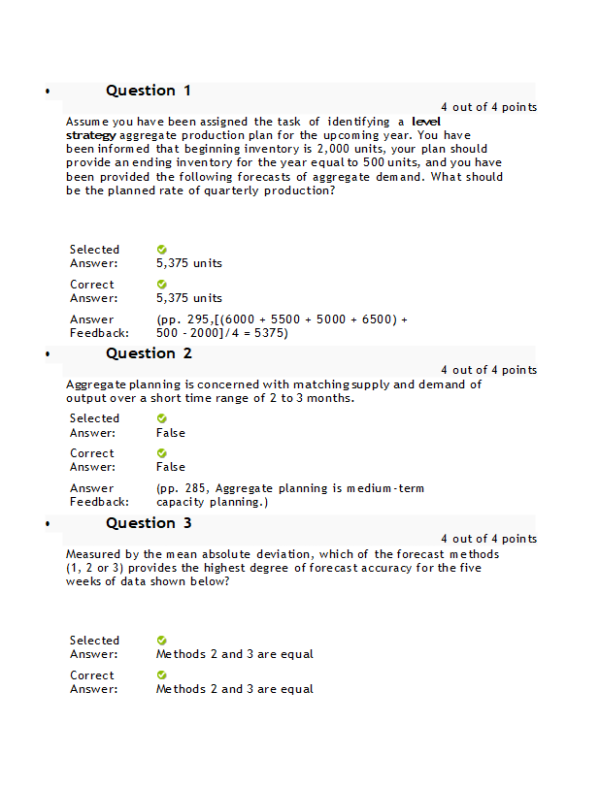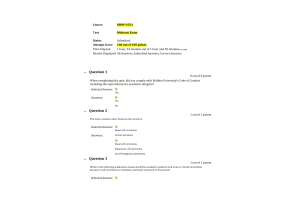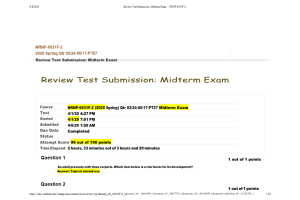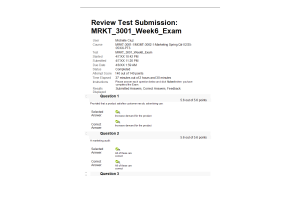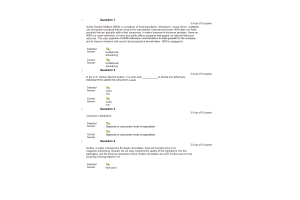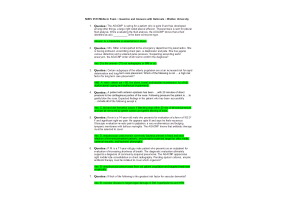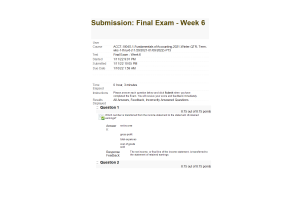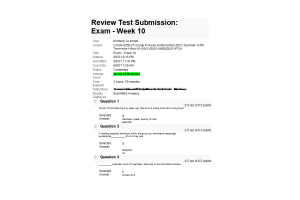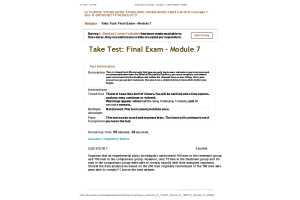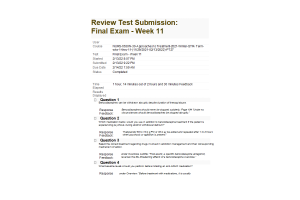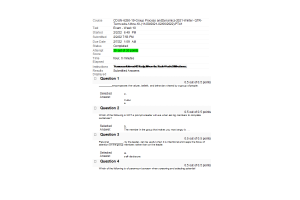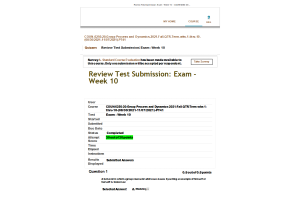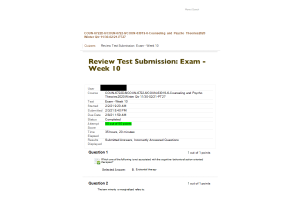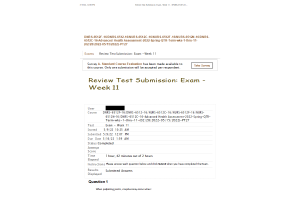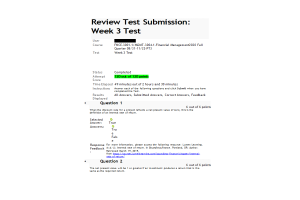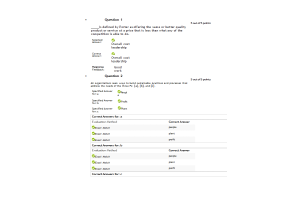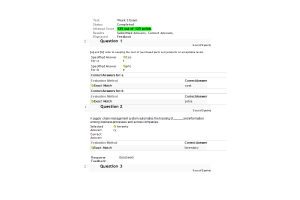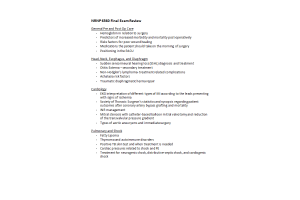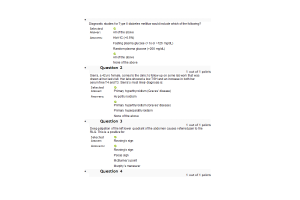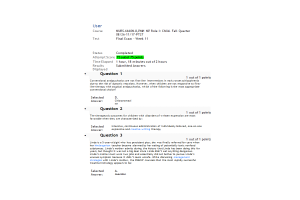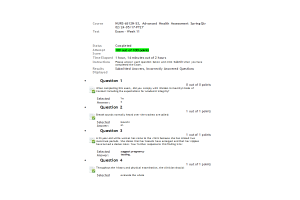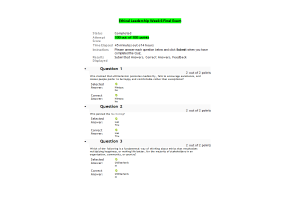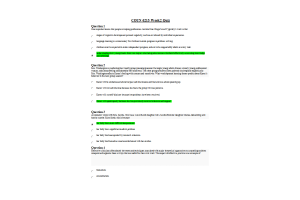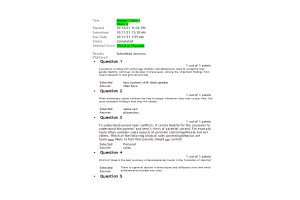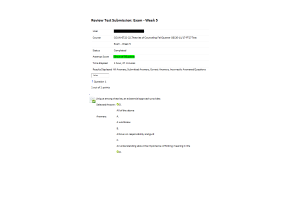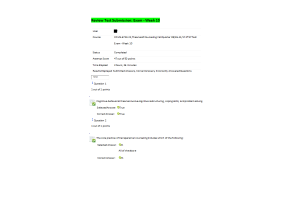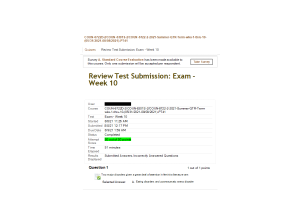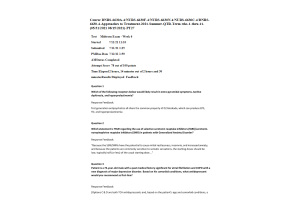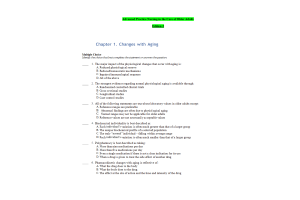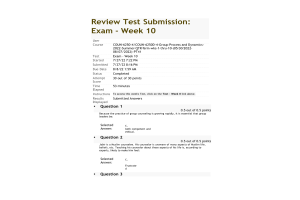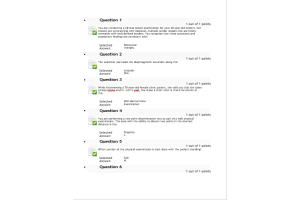WMBA 2003 Week 6 Final Exam (100% Correct)
- $29.00
1.Question: Assume you have been assigned the task of identifying a level strategy aggregate production plan for the upcoming year. You have been informed that beginning inventory is 2,000 units, your plan should provide an ending inventory for the year equal to 500 units, and you have been provided the following forecasts of aggregate demand. What should be the planned rate of quarterly production?
2.Question: Aggregate planning is concerned with matching supply and demand of output over a short time range of 2 to 3 months.
3.Question: Measured by the mean absolute deviation, which of the forecast methods (1, 2 or 3) provides the highest degree of forecast accuracy for the five weeks of data shown below?
4.Question: Assume a business has $700,000 worth of inventory and averages
$10,000 per day in sales. Also assume it takes 30 days for the average customer to pay off its accounts receivable to this company and it takes 120 days for the company to pay for the materials supplied by the suppliers. What is the company's average cash-to-cash cycle time?
5.Question: Which of the following is not a qualitative approach to forecasting?
6.Question: Which of the following is not an element of the quality cycle?
7.Question: The forecasting techniques of exponential smoothing and moving average that have rapid response rates to changes in the mean level of demand have:
8.Question: A negative value of capacity cushion indicates that the average demand is less than the capacity available.
9.Question: Sales and Operations Planning (S&OP) is a stand-alone system that is used to match supply and demand using a cross-functional approach.
10.Question: Factors that need to be considered when making facility-planning decisions include all of the following except:
11.Question: A supply chain refers to:
12.Question: Which of the following statements concerning ISO 9000 is false?
13.Question: The Box-Jenkins forecasting method is an example of a time series forecasting method.
14.Question: Assume you have been assigned the task of identifying a level strategy aggregate production plan for the upcoming year. You have been informed that beginning inventory is 0 units, your plan should provide an ending inventory for the year equal to 0 units, and you have been provided the following forecasts of aggregate demand. What should be the planned rate of quarterly production?
15.Question: The measures of quality used in manufacturing processes can be readily transferred to service operations.
16.Question: Facility planning entails five crucial decisions, including all of the following
17.Question: Outsourcing occurs when a firm moves work performed internally to another facility belonging to the same firm but in another country.
18.Question: Using a three-period, weighted moving average forecast model with weights of 0.50, 0.40, and 0.10 (weights decline with the age of the demand observation), what would the forecast of demand be for the upcoming week 6 given the historical demands shown below?
19.Question: Supplier certification means the supplier has control over the processes and can pass an ISO 9000 type of audit at the very least.
20.Question: The four "costs of quality" include all of the following except:
21.Question: Which of the following is NOT a type of facility choice?
22.Question: Utilization = Nominal Capacity/Output.
23.Question: Training is an example of appraisal costs.
24.Question: Little's Law in a manufacturing process relates to:
25.Question: According to Little's Law, average throughput time equals average inventory * average flow rate.
